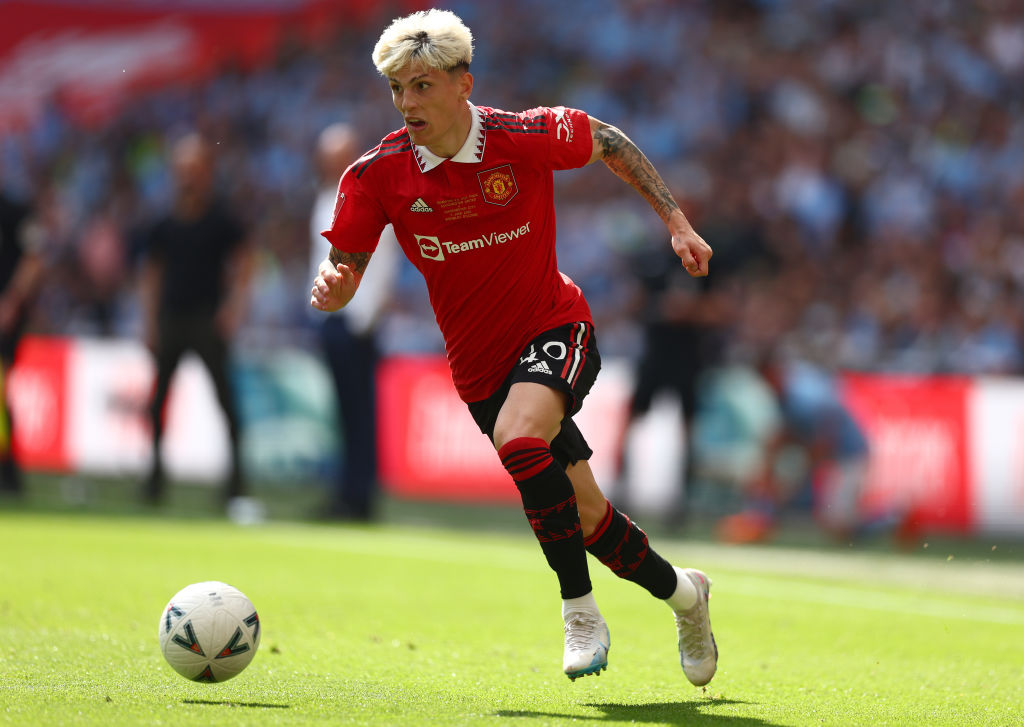How the Home Office made it easier for English football to sign foreign youngsters

A little over two years after English football shut the door on a host of foreign talent by implementing strict post-Brexit rules, it prised it open again this week when the Home Office approved a relaxation of the regulations.
The biggest change affords clubs more scope to appeal for an exception to be made if a potential signing does not meet the points-based criteria to automatically qualify for the Governing Body Endorsement needed to play here.
In theory, it should mean that English clubs do not miss out exceptional talent – especially emerging stars yet to gain much experience – to their overseas rivals and further strengthen the Premier League’s dominant position in the transfer market.
Former Arsenal and Chelsea Cesc Fabregas, who moved to England from Spain as a 16-year-old in 2003, has been cited as one former star who would have been lost to the Premier League under the initial post-Brexit GBE rules.
But it has also been designed to satisfy the Football Association’s insistence on promoting English players, so clubs will be incentivised to provide playing time for those who qualify to represent the Three Lions too.
How does the new Home Office GBE system affect English football?
Previously, English clubs were only granted exceptions in very limited circumstances but, effective immediately, they can now sign a set number of players who do not achieve the 15 points needed to obtain a GBE from the FA.
The number of exceptions allowed is initially set at two per club, although Premier League and Championship clubs can gain an extra one or two depending on the percentage of minutes they have given to English-qualified players.
In future, a club’s allocation, from zero to four, will be determined solely by how much they use English-qualified players – a mechanism to ensure native talent does not suffer from any additional imports.
Not everyone can be granted an exception, however; they need to be in the upper range of the point-based system or, in the case of a young player, considered good enough to improve the game in this country.
The bar is set fairly low to argue the case for a young player, though, with five domestic league appearances or one game in the Europa Conference League deemed strong enough grounds to ask for an exception.
“The new model should meet the objectives of football stakeholders giving clubs additional access to international players as well as incentivising playing opportunities for English players,” Dipesh Shah, Head of Corporate Immigration at JMW Solicitors in London, told City A.M.
“It will also allow younger stars to be able to move to the UK much earlier in their career as clubs previously had to wait for a player from an EU country to turn 18 to sign them.
“As a result top flight clubs smashed the January transfer record for spending as they were required to sign more expensive, established talent.
“When the GBE endorsement criteria was initially drawn up, the Premier League had wanted this threshold to be just nine points – meaning it would be easier for clubs to sign promising young players.
“The FA, meanwhile, had pushed for it to be 18 points, making it harder, and therefore preventing the market being flooded with overseas talent at the expense of English players.
“In addition, the ban on the signing of under-18s and restrictions on under-21 transfers had a major impact on some clubs as well as driving up prices for English players. While Premier League clubs are able to meet the larger fees for international players this is beyond the reach of most EFL clubs.”
Why England can now shop more in Major League Soccer and Japan
There is more to this week’s rule changes than finding the new Fabregas, with a reassessment of the relative quality of the world’s leagues also opening the door to more players from outside of Europe.
Major League Soccer’s elevation to Band Three means that anyone playing 80 per cent of their MLS team’s minutes will meet automatic GBE criteria, which will further incentivise English teams to cast their nets across the Atlantic.
And the J-League, which has been exploited successfully by Celtic in the Scottish Premiership, has moved up to Band Five, paving the way for some of Japan’s emerging stars to make a move to England.
“The top players in youth teams outside of Western Europe will be the players most likely to benefit from this policy,” added Shah.
“MLS players and The J.League’s addition to Band 5, combined with Japan’s Fifa ranking, means Japanese players who are regulars for their clubs could earn enough points for a GBE if they have played at least 0.5 per cent of the available minutes for the Japanese national team over the past two years.
“Celtic have been giving Japanese players a stepping-stone to the Premier League, but these changes could give more top Japanese players a direct route to the top.”
